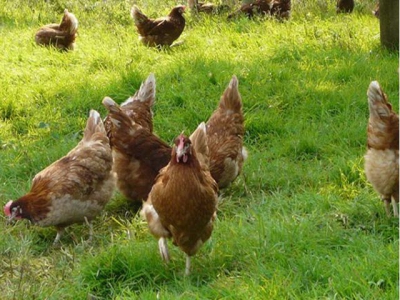European project set to improve hen welfare

European-wide project launched to improve conditions of egg-laying chickens.
A European-wide project to improve the conditions of egg-laying chickens was launched Oct. 4 under the umbrella of the ChickenStress European Training Network (ETN).
The multimillion-euro project includes 20 partners in education and industry, including Hendrix Genetics and Vencomatic, which are two major suppliers to the global egg industry. It will train future leaders in a range of scientific studies and help egg producers attain the best possible welfare standards for chickens, according to an announcement from Newcastle University in the U.K.
ETN has received €3.9 million investment from the EU Marie Curie Fund.
Dr. Tom Smulders, reader in evolutionary neuroscience from Newcastle University and project leader, explained, “Shoppers consistently ask for chickens to be kept in the highest possible welfare conditions, and in Europe in 2012, this led to a ban on battery cages. However, while this was introduced with the best of intentions with an eye to improving welfare, unexpected problems have occurred with alternative production systems.”
Over the course of four years, 14 international studies under the supervision of world experts in their fields will be carried out on factors that contribute to stress response and resilience in poultry, Newcastle said.
With the involvement of industry partners, these studies will range from examining what causes stress in chickens from breeding to how they are raised to the environment in which they are kept, including the feed systems and housing.
“We still don’t know what is best for laying hens in these large-group housing systems, and it is difficult to ask the chickens," Smulders said. "We will study how stress affects the brain and use this knowledge to identify best practices. We don’t know, for example, how the environment in which they are reared affects how well they adapt to the free-range systems they will be housed in in adulthood, nor how hatching conditions affect their ability to deal with novel situations later in life. These are the kind of welfare questions we want to answer with this project.”
According to the announcement, a variety of methods will be used over the course of the projects to measure stress responses and responsivity in laying hens, including markers in the brain (neurogenesis, different neurotransmitters), stress hormones, behavioral tests and observations and health parameters.
Each project will involve a doctoral student as part of the initiative to develop future scientific leaders. By working with industrial partners like Hendrix Genetics, Vencomatic, Noldus Information Technology and The Lakes Free Range Egg Co. Ltd., as well as the trade union EUWEP (European Union of Wholesale with Eggs, Egg Products, Poultry & Game), the scientific team will be able to implement conditions that maximize welfare and productivity.
Sleeping behavior
Researchers at Scotland's Rural College (SRUC) will look at sleep behavior in laying hens to see how it is modified by stress and various housing environments.
Dr. Victoria Sandilands, who will lead the SRUC project with an early-stage researcher, said, “This is an exciting consortium of established scientists and early-stage researchers that will improve our understanding of stress in laying hens. I’m looking forward to our student exploring sleep in hens, a little-understood phenomenon, and being able to work alongside a world expert in sleep from the Max Planck Institute and then with a major poultry house equipment company, Vencomatic.”
The research partners include: Newcastle University, Institut de Recerca Biomèdica de Lleida - Fundació Dr. Pifarré (IRBLleida), Universidad de Lleida, The University of St. Andrews, The Open University of Israel, Universitaet Bern, SRUC, Universiteit Utrecht, Norwegian University of Life Sciences, Eigen Vermogen -Instituut voor Landbouw en Visserijonderzoek, Hendrix Genetics, Trinity College Dublin, Vencomatic Group BV, Noldus Information Technology BV, Max Planck Institute for Ornithology, University of Veterinary Medicine Vienna, Linköpings Universitet, The Lakes Free Range Co. Ltd., Universiteit Gent and Tel Aviv University.
Related news
 US, Pakistani researchers team up to design antibiotic-free poultry support
US, Pakistani researchers team up to design antibiotic-free poultry support An international research partnership is seeking to reduce the reliance on antibiotics by developing novel alternatives using a combination of bacteriophage
 Ambitious, $10m grant to transform poultry nutrition, water use
Ambitious, $10m grant to transform poultry nutrition, water use Poultry science research grant, co-led by University of Arkansas and Cornell, is among largest ever awarded by USDA.
 Black soldier fly tech aims to simplify, specialize production
Black soldier fly tech aims to simplify, specialize production New technology developed to store, and transport black soldier fly larvae seeks to address producer challenges and help specialize